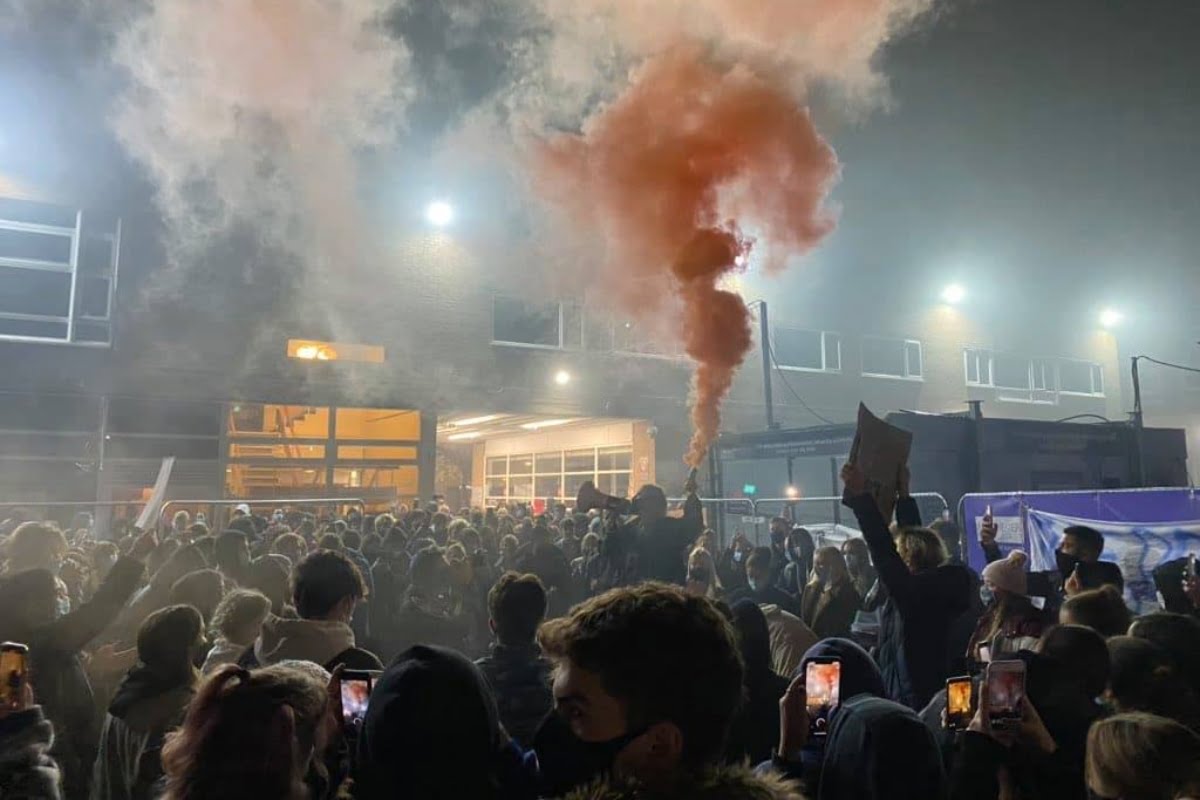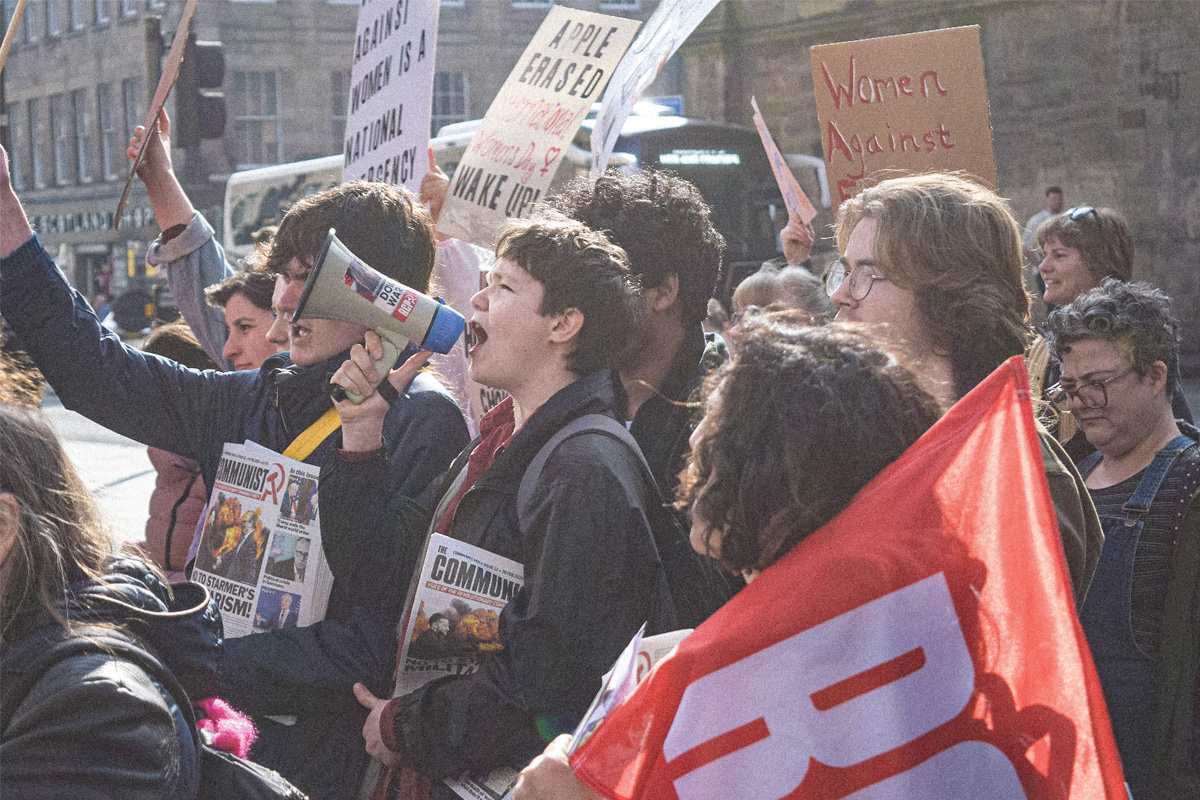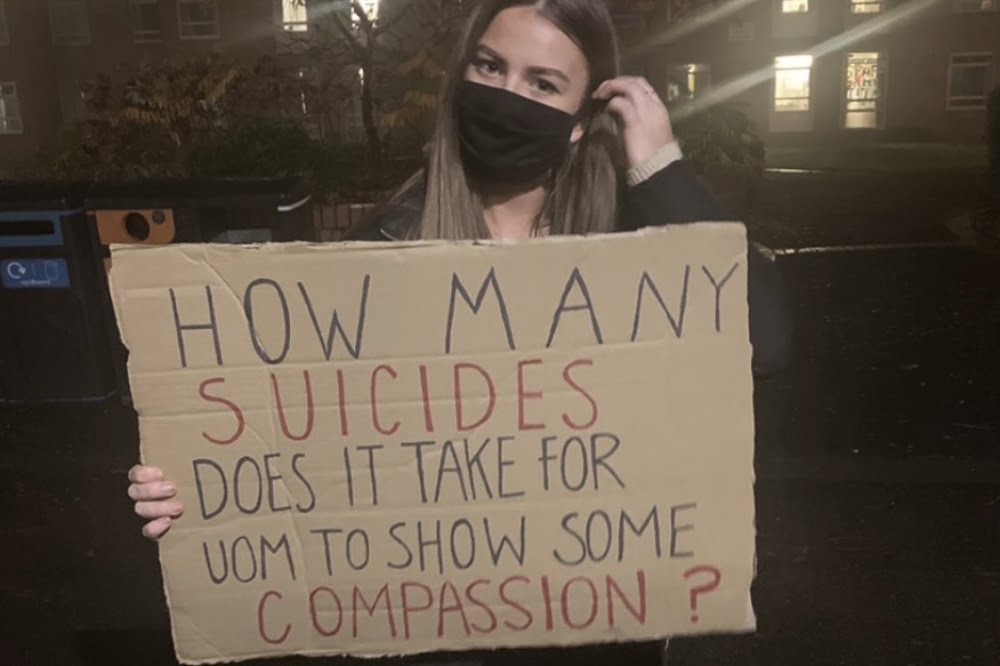The past year has been a traumatic one for students, facing isolation and uncertainty. But it has also provided a valuable experience in organising and taking action. These lessons must be taken forward in the fight to defend education.
For university students across Britain, the past year has been a masterclass in how little our health, safety, and even lives matter to the Tories. As the academic year has now drawn to a close, the ongoing education debacle has underlined to thousands why education should be free, and why the bosses must pay for this crisis.
University students have been thrown from pillar to post throughout the past academic year. Having been brought to universities on false pretences, to being held captive by management, it is clear that students are treated as little more than cash cows for the increasingly marketised system.
Importantly, however, the criminal mishandling of the pandemic has not led to despair. Students have seen the mask slip from management’s face. Despite all the managements’ platitudes of ‘not hurting our education’, many students have nevertheless been hardened to the importance of militant action.
University students have received a real education in how to band together, show solidarity, organise strike committees, reach out to the unions, and stand up for themselves. This has been a significant lesson from the past year.
Marketisation
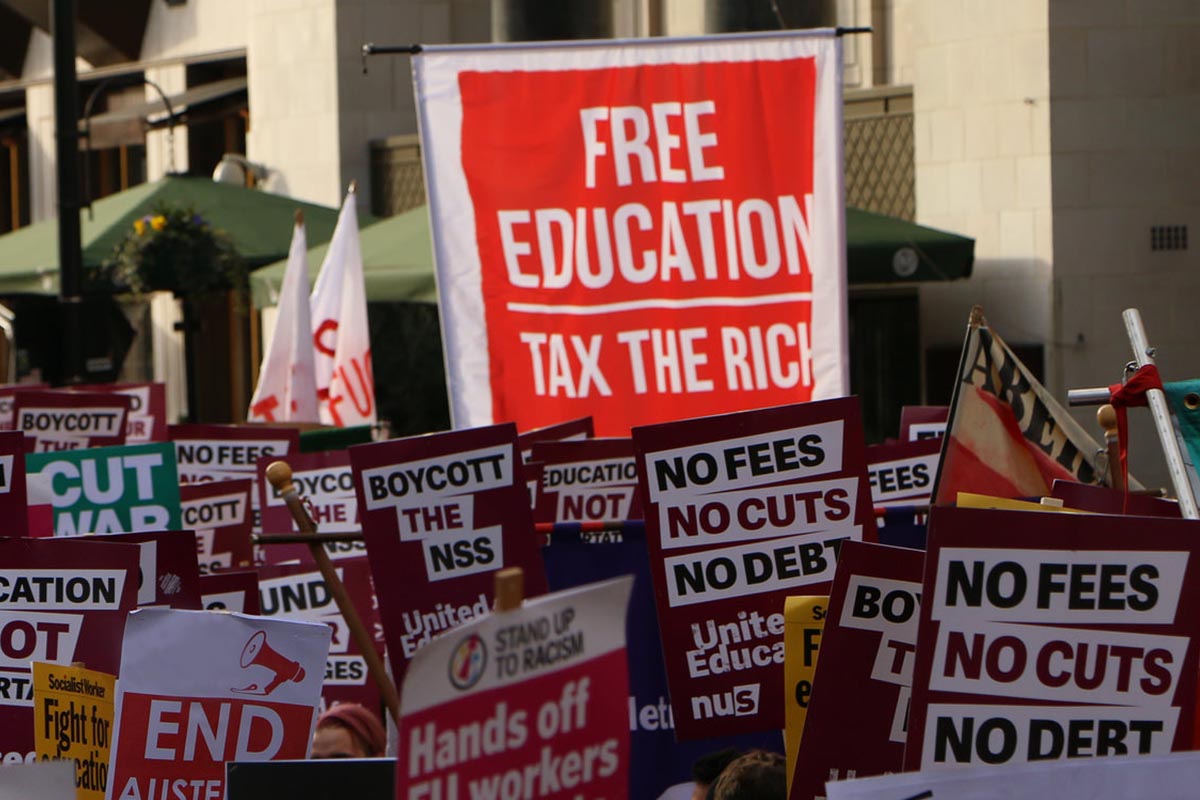 For many university students, the pandemic has unequivocally shown up the government’s lack of regard for their education. But this is no aberration – our education system has been under attack for years, as capitalism struggles through a period of unprecedented crisis.
For many university students, the pandemic has unequivocally shown up the government’s lack of regard for their education. But this is no aberration – our education system has been under attack for years, as capitalism struggles through a period of unprecedented crisis.
It is the very same marketisation of education that pushed lecturers to take strike action over the past three years. Students’ learning conditions are their teaching conditions. And the pressures faced by students are akin to those on poor, casualised pay, struggling for a semblance of security.
While management have been enjoying their bloated salaries, university staff have been given the Herculean task of providing education with poor provisions and a lack of resources. It has been a recipe for disaster.
Conditions have gotten worse across the board, with online learning potentially becoming the new norm. For students and staff, this has been an intensification of the problems that beset both their education and livelihoods.
Mixed messages
 The past year has illuminated just how little thought the government has taken, when it comes to students’ education, lives, and – most importantly – futures. Throughout this past year, mention of university students has been continually forgotten by Boris Johnson and his crony cabinet.
The past year has illuminated just how little thought the government has taken, when it comes to students’ education, lives, and – most importantly – futures. Throughout this past year, mention of university students has been continually forgotten by Boris Johnson and his crony cabinet.
Through all the government’s mixed messaging, finding a modicum of clarity has required scouring the internet after every bumbling announcement. Lo and behold, after the second lockdown was introduced, advice for students was buried deep in a thirty-page document. The hidden message was that university students should stay at home for the foreseeable future.
The concealing of this was no mistake. It allowed landlords and management to continue to demand their tribute for shelter above students’ heads. All the while, students returning to halls were blamed for the second wave by the right-wing rags!
Strikes
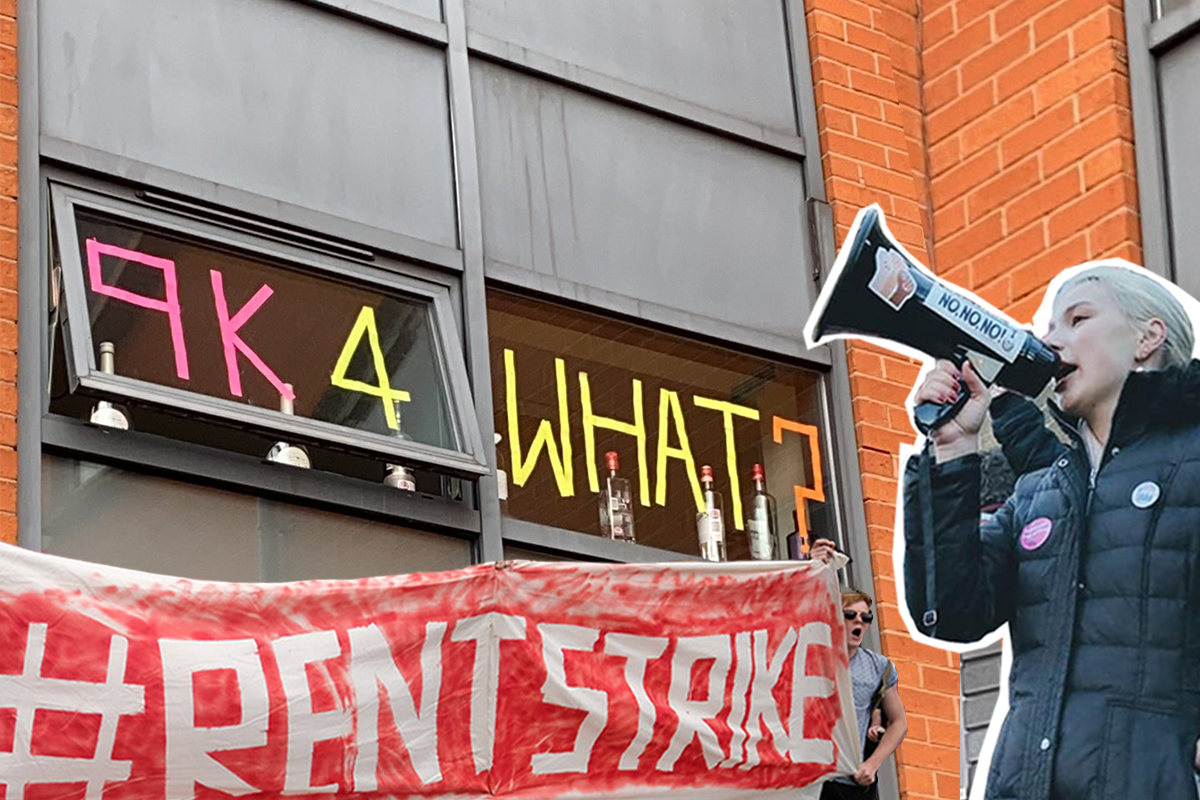 The experience of first year students, in particular, has been wholly shaped by the uncertainty caused by Tory policies.
The experience of first year students, in particular, has been wholly shaped by the uncertainty caused by Tory policies.
Before even getting to university, many places were jeopardised by the Tories’ ‘standardised’ grading system. This systematically gave state school students, from predominantly working-class areas, lower grades than their grammar or private school counterparts.
Good grades were selected not by merit, but by a postcode lottery. This sparked a wave of anger among thousands of students across the country. Students took to the streets in protest, causing the government to U-turn on their policy only a week later.
This militancy only continued once students got to university, with a wave of rent strikes sweeping across Britain’s campuses.
The government had allowed students to start their first term in halls as usual, despite many universities not being properly equipped to test their new cohorts for coronavirus. This led many students spending their first few weeks of university in isolation without proper support, food, or testing – all so that universities and landlords could continue to charge extortionate rents.
This reignited the anger felt by students during the summer, with students turning to rent strikes as means to demand better conditions. Furthermore, many universities planned to make hundreds of redundancies to their essential workers. In response, students also used rent strikes to demand the protection of these workers’ livelihoods.
At its peak, over 55 universities had pledged to strike; and many of these rent strikes achieved successes. Students at the University of Manchester, for instance, achieved a 30% rent reduction for those in halls from September to January, and a 100% rent rebate during the third national lockdown.
Lessons
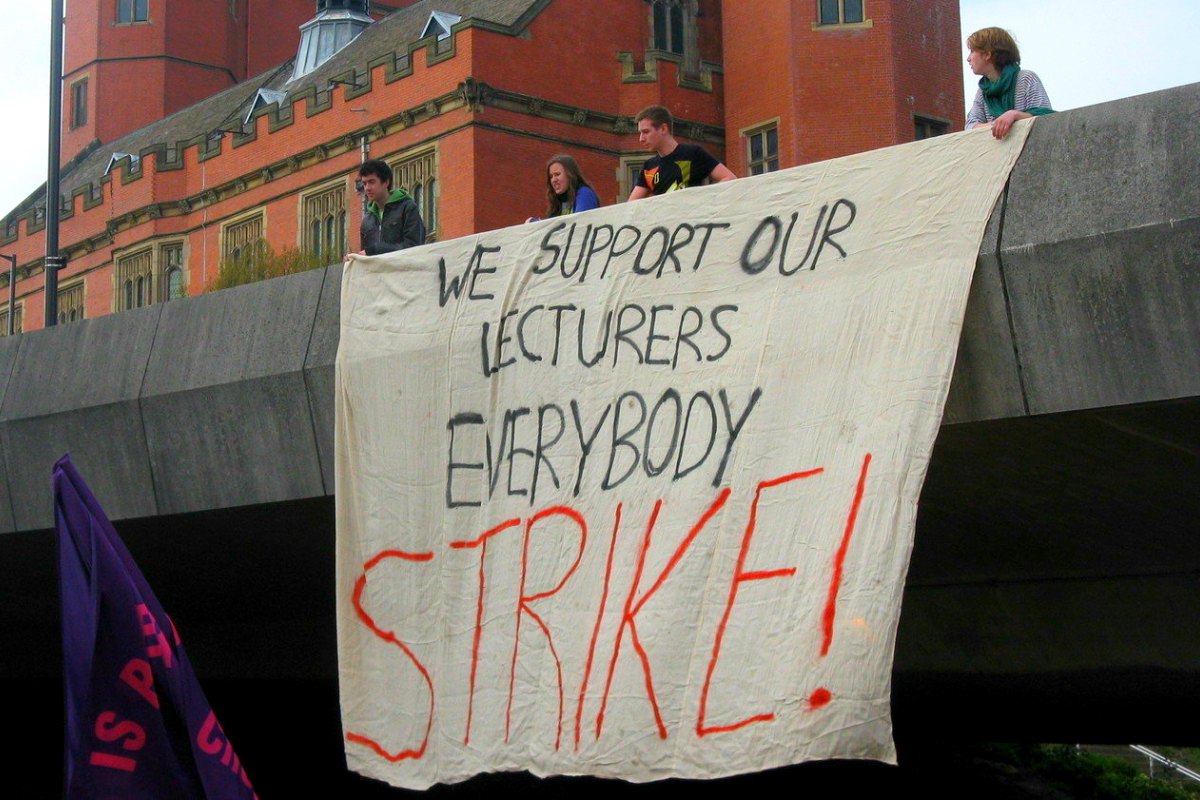 Though many of these struggles have subsided for now, they have given students a sense of their own strength when they come together and fight collectively with staff. It has highlighted to many that further and larger action needs to be taken to remove our education from the clutches of capitalism.
Though many of these struggles have subsided for now, they have given students a sense of their own strength when they come together and fight collectively with staff. It has highlighted to many that further and larger action needs to be taken to remove our education from the clutches of capitalism.
These firing shots of struggle have led many to realise that a complete system change is needed to ensure that universities are a place for education, not profit.
Though students have been blamed and abandoned by the fat-cats; and though it may not have been the year many had anticipated, there are vital lessons to be learned from the past twelve months. Students, now more than ever, are coming together to fight.
Students must link their struggles with those of workers in and outside of campus, and direct their energies to kicking out the Tories, as part of the fight to kick out capitalism.

